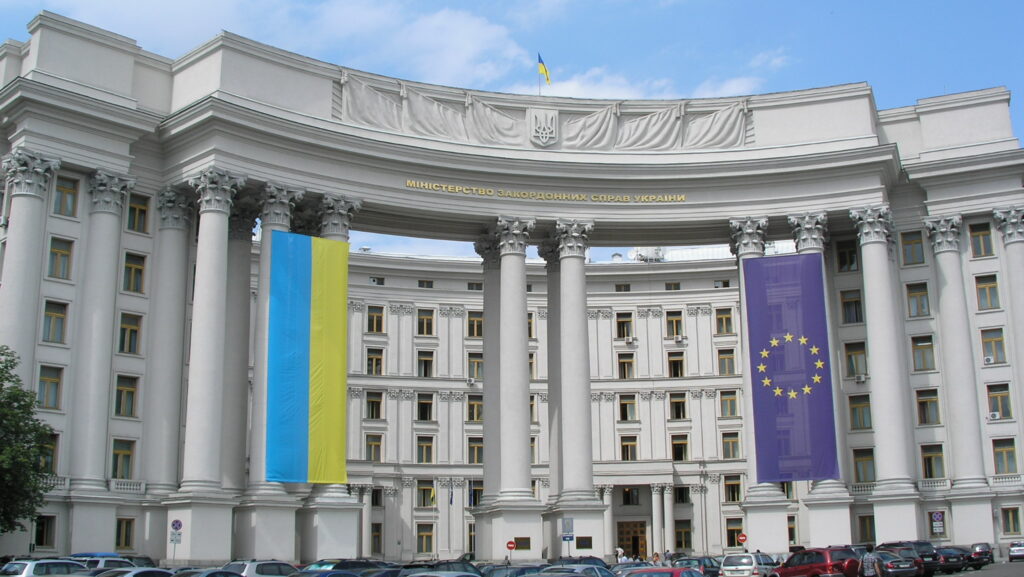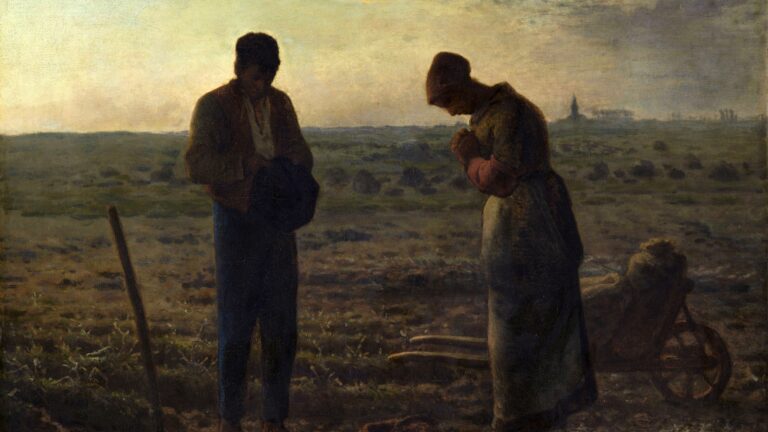‘Render unto Caesar what is of Caesar and to God what is of God.’ (Mark 12, 17) These are the words by which Jesus Christ answered the Pharisees when, in their hypocrisy, asked Him: ‘Is it lawful to give tribute [taxes] to Caesar or not?’
His answer is considered as the basis of religious freedom or freedom of conscience as a political right. Since man is ‘created in the image and likeness’ of God, the State must recognise the individual’s free choice, according to his own conscience, to exercise his faith or not to exercise it. That is why there is the separation between church and state in democracies. But this separation does not mean that ‘Caesar’ does not render anything of what is his unto God. Indeed, the State not only has the duty to promote and protect the right of the individual to exercise their faith, but it must do so by acknowledging the Christian anthropology that has both contributed to the formation of Western civilisation, especially in Europe, and laid the foundation to achieving the common good. And it is in having a well-ordered community that the common good is arrived at.
Today our society, the Roman Church, and other ecclesiastical communities are experiencing an epidemic of confusion and moral and doctrinal disorientation, which is threatening the common good.
What Is the Common Good?
St Thomas Aquinas says that the ultimate good of man is the beatific vision. While he does not directly treat the ‘common good’ with a specific question, his thoughts can be derived from numerous writings, specifically his discussion of law and legal justice.
In the Summa Theologiæ, Iæ, IIæ, Q. 90, a.2, ad.2, the Angelic Doctor writes:
‘Actions are indeed concerned with particular matters: but those particular matters are referable to the common good, not as to a common genus or species, but as to a common final cause, according as the common good is said to be the common end.’
The notion of the common good is a derivation of the concept of Greek democratic policy and medieval political thought.
During the modern period, beginning with the concepts of Hobbesian contractualism, according to which man, in his state of nature forfeits his rights for security, and Kantian contractualism—the idea of a morally constrained agreement among individuals who regard themselves and one another as free and equal persons warranting moral respect—the concept of the common good underwent profound transformations until it eventually faded away from public discourse.
It’s rebirth occurred with the Encyclical Rerum Novarum (1891) of Pope Leo XIII, which appealed to the body politic to implement the aforementioned concept of the common good. Subsequently, this encouraged Christian socio-political movements geared to realizing the totality of social conditions that would allow persons to reach their communal and individual fulfilment as dictated by the natural law.
The common good is a complex category that goes beyond interest in issues related to the aim of the state or economic realities. Its horizon extends to viewing each individual as a person created in the image and likeness of God (Genesis 1, 27), for which families and intermediate groups unite themselves in the social community. In fact, the polis—the organisation of the good life of citizens and not a simple corporate aggregate—for Aristotle, is the realisation of the highest good, the ‘common good’, which as the end of political action belongs to each citizen and to all citizens as a whole, i.e., that which benefits society as a whole, in contrast to the private good of individuals and sections of society. It is the overcoming of personal and group individualism, condition, for man, of virtuous and happy life with his fellow man. In this manner, he can contemplate and work towards his end: the beatitude in heaven.
The common good expresses the socially relevant elements of the natural dignity of the person, his fundamental, that is, non-negotiable, goods which the political community must protect and promote.
Defending the Common Good
The principle of equality between all men is a principle that is commonly born with the institutional Catholic Church and the Greco-Roman culture, which always sustained the institution of the family as the foundation of civilisation. Due to the pervasive lethargy that characterizes politicians and statesmen, including within the European Union, media outlets, and even certain churchmen, the common good has been debouched and defiled by certain acts and behaviours such as abortion, homosexual unions, transgenderism, economic exploitation of the poor, unnecessary wars, etc. In reality, what we have is freedom of conscience, as properly informed by the natural law, being prevented from or penalized if voicing objections against such acts, thereby further degrading the common good.
The common good, the intrinsic requirement of justice, is a good linked to the social life of people that must be translated into moral action by calling every human person to be responsible, both as an individual and as a member of a community.
Morality, regrettably, is at times replaced by material progress, by which the human person has become a mere statistic.
In this regard, it is worth recalling the words of Pope St John XXIII who wrote in the encyclical Pacem In terris (1963):
‘Like the common good of individual political communities, so the universal common good cannot be determined that having regard to the human person. Therefore, the public powers of the world community must also propose as a fundamental objective the recognition, respect, protection and promotion of the rights of the person: by direct action, when the case involves it; or by creating a world-wide environment in which it is made easier for the public powers of individual political communities to perform their specific functions.’
This is why, John XXIII continues to say, that those in authority are to be a moral force, which is why ‘a regime which governs solely or mainly by means of threats and intimidation or promises of reward, provides men with no effective incentive to work for the common good.’
The promotion of the common good is everyone’s responsibility and duty, especially of Christians.
It is, in fact, an irrevocable commitment to build it up, i.e., to work towards peace and harmony as taught by the Gospels. ‘In this regard’, said Benedict XVI, ‘the tranquillitas ordinis of which Saint Augustine speaks refers to “all things”: that is to say both “civil peace”, which is a “concord among citizens”, and the “peace of the heavenly city”, which is the “perfectly ordered and harmonious enjoyment of God, and of one another in God”’. (De Civitate Dei, XIX, 13) can be achieved.








